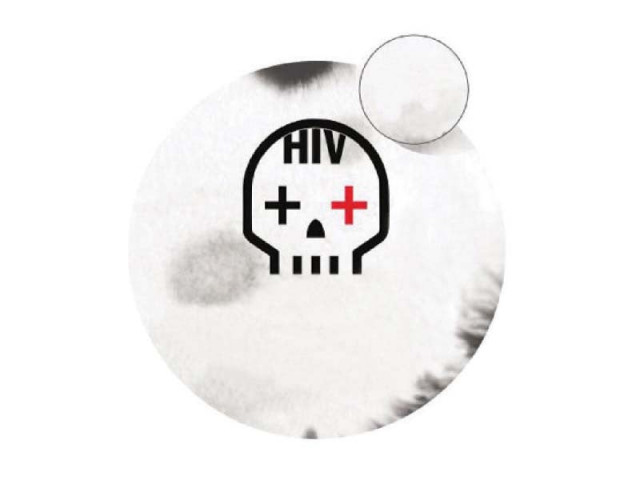Around 160 HIV patients miss doctor’s appointments
Health dept struggles to trace infected children in epidemic-hit Ratodero

It was in 2019 that the world was shaken as an HIV epidemic hit Ratodero, a remote, sleepy town located 30 kilometres north of Larkana, infecting nearly 1,000 children. Around 160 of these patients have not visited the hospital for the past three months, The Express Tribune has learnt.
“Majority of them are children,” disclosed an official, who believed that it was misinformation that prevented families from bringing their children to clinics.
HIV - human immunodeficiency virus - is an infection that attacks the body’s immune system, specifically the white blood cells called CD4 cells. If left untreated, it can develop into acquired immunodeficiency syndrome (AIDS).
Many families, whose children were infected in the outbreak reportedly spurred by reused syringes and contaminated injections, live in nearby Ratodero villages, a half an hour-long drive away from Larkana city, - a stronghold of the ruling Pakistan Peoples Party - where treatment facilities are set up.
“It seems a bit hard to convince parents to regularly visit the hospital and take medication, which is free of charge,” said another official, also speaking on the condition of anonymity.
One father, who brought his three children, all infected with HIV, to the clinic around six months ago, told The Express Tribune that it was difficult for him to manage the transport costs he needed to cover to acquire the “free of charge” treatment. Two years on, the Sindh health department has been able to do little to ensure adequately equipped medical facilities at the site of the outbreak, which also infected hundreds of adults.
Read More: The doctor who unearthed Ratodero’s HIV epidemic
Conceding to the missed appointments, the provincial head of the HIV/AIDS Control Programme, Dr Irshad Kazmi, said that it was common practice among patients of life-long illnesses, such as HIV, to skip regular treatment. “This has been happening since the outbreak of the disease.”
However, Dr Kazmi claimed the number of patients the health department failed to follow up with or those who had missed appointments was 116 and not 160 as sources privy to the development had confirmed to The Express Tribune.
Dr Kazmi said that counselors employed at health facilities near Ratodero have been tasked with following up with the families of HIV positive children. “We are giving them [parents] mobile phones and internet devices,” claimed Dr Kazmi, adding that his department would also extend financial support to ensure these devices remain active.
The health department will begin with tracing 50 such families first, he elaborated. An endowment fund was also set up by the department to lend financial support to affected families, he added.
On the other hand, Dr Imran Akbar Arbani, who was disappointed - and appalled - at the delayed response of the health department when he first alerted them to the outbreak among children, believes that counselling at the government health facilities is not up to the mark.
“The biggest disease is illiteracy,” said Dr Arbani. “This a big number [of untreated patients]. These patients could further spread the infection.”
Dr Kazmi, however, was of the view that when expensive tests, treatment and medication were being provided free of charge it should not be this difficult to trace patients. “It is a strange phenomenon in our part of the world that health professionals have to go door to door for patients to take their medicines.”
Given the lack of awareness around the disease, HIV patients have to brave social stigma besides transport and other costs. When the outbreak first hit, many families were ostracised, with some compelled to move out of their neighbourhoods as families of healthy children did not wish for them to associate with sick children. The awareness campaigns launched by the health department back in 2019 hit snooze as the world’s gaze shifted from a crisis still plaguing Ratodero.
Published in The Express Tribune, September 30th, 2021.



















COMMENTS
Comments are moderated and generally will be posted if they are on-topic and not abusive.
For more information, please see our Comments FAQ